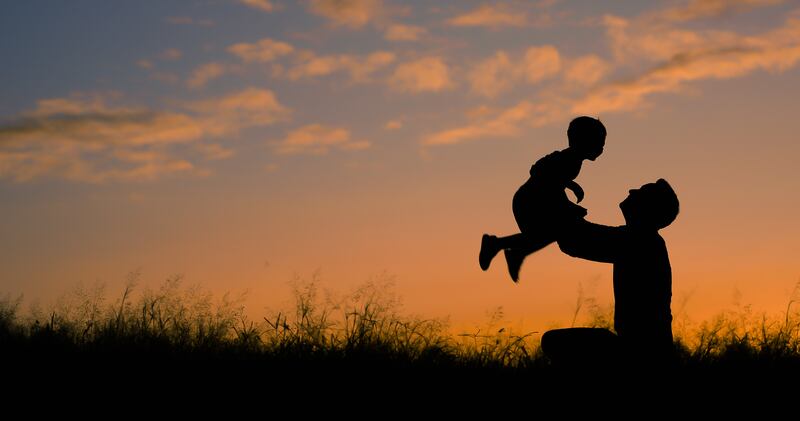We’d been married less than a month when I began to understand the “hero instinct” in men. I’d been gone for several hours when I returned to find my husband dangerously high up in a tree in our front yard, trimming branches in the dark. He’d been working since I’d left, driven by a desire to make the yard look better, sensing it was important to me. That night he tried to describe the feeling — what it meant to sacrifice personal comfort to do something that I would feel grateful for, something I couldn’t do without his help.
I sensed the same thing in a colleague’s comment sometime later. While I waited for him to get off the phone, I noticed a handwritten list of tasks in front of him. Once off the phone, he crossed another task off, then referencing his wife said, “Jenet, I feel like a hero when I am able to take care of these things for Ruth.”
Just last week, an 18-year old nephew spent hours in hot sun holding and managing the rope that enabled his aunts, siblings and cousins to get over a challenging precipice during a backpacking trip. Knowing he had far more exciting things he could have been doing, I was surprised to hear him identify that somewhat grueling task as one of his favorite parts of the trip. In his words, it just “felt good” to be the one whose strength and capacity enabled others to be safe, to be able enough that others could rely on him.
That “hero instinct” helps explain pervasive evidence for how transformative marriage and fatherhood is in men’s lives. For example, as summarized in American Enterprise Institute’s 2015 report “For Richer, For Poorer,” men who are married tend to work harder (400 more hours per year), smarter (refusing to quit jobs until another is lined up) and “more successfully” than their single peers with similar backgrounds. The result is a significant increase in earning power, something researchers call “the marriage premium.” Married fathers also tend to live longer — 10 years longer — than peers with similar backgrounds, partly explained by the fact that they engage in less risky activities and the fact that “companionship, support and gentle encouragement,” from a spouse lead to better health.
Marriage and fatherhood appear to transform men from the inside out, researchers have noted. Even hormonal changes that occur in the process of living with their children play a role in orienting men to “settle down, steer clear of attractive alternatives and engage their children.” It shouldn’t be surprising, then, that married fathers also “experience less depression and more happiness,” when compared to their unmarried and childless peers.
But the desire to become better for and sacrifice for others doesn’t just show up. That “hero instinct,” as Victor Frankl noted, happens when men feel a “coherent and directed sense of meaning for their lives.” Marriage with fatherhood does just that — “binds men to their families,” giving them a recognizable role to play, a coherent sense of direction and meaning and a context in which they can become a hero to those for whom they have devoted their lives.
“Tragically, the path laid out for many young men today diminishes their capacity to form the commitments that lead them to rise up and become what they could be.”
Tragically, the path laid out for many young men today diminishes their capacity to form the commitments that lead them to rise up and become what they could be. And as marriage rates have fallen, so have the educational and professional achievements of men. The result is an increasing number of undereducated, underemployed, nonmarried, prime-age males who are particularly vulnerable to “high levels of desperation, stress and anger,” the driving force in increased mortality rates associated with drug and alcohol overdoses. Almost prophetically, Ernest Becker wrote nearly 50 years ago, “the crisis for modern man is that he no longer feels heroic in the pathways his current culture has set up for him. The alternative for many is thus despair and or the adoption of a life stance … whose aim is to ward off feelings of helplessness(.)”
Father’s Day honors the “father heroes” in our lives who have gotten up early and worked long nights to provide for our needs, who have sacrificed personal pleasure and gain so they could protect and guide us, who have cared for our fears and concerns while challenging us to becoming all they believed we could be. But Fathers’ Day also honors the transformative gift of fatherhood in men’s lives, and how it invites the development and change that makes them true heroes.
Jenet Jacob Erickson is an affiliated scholar of the Wheatley Institution at Brigham Young University.


